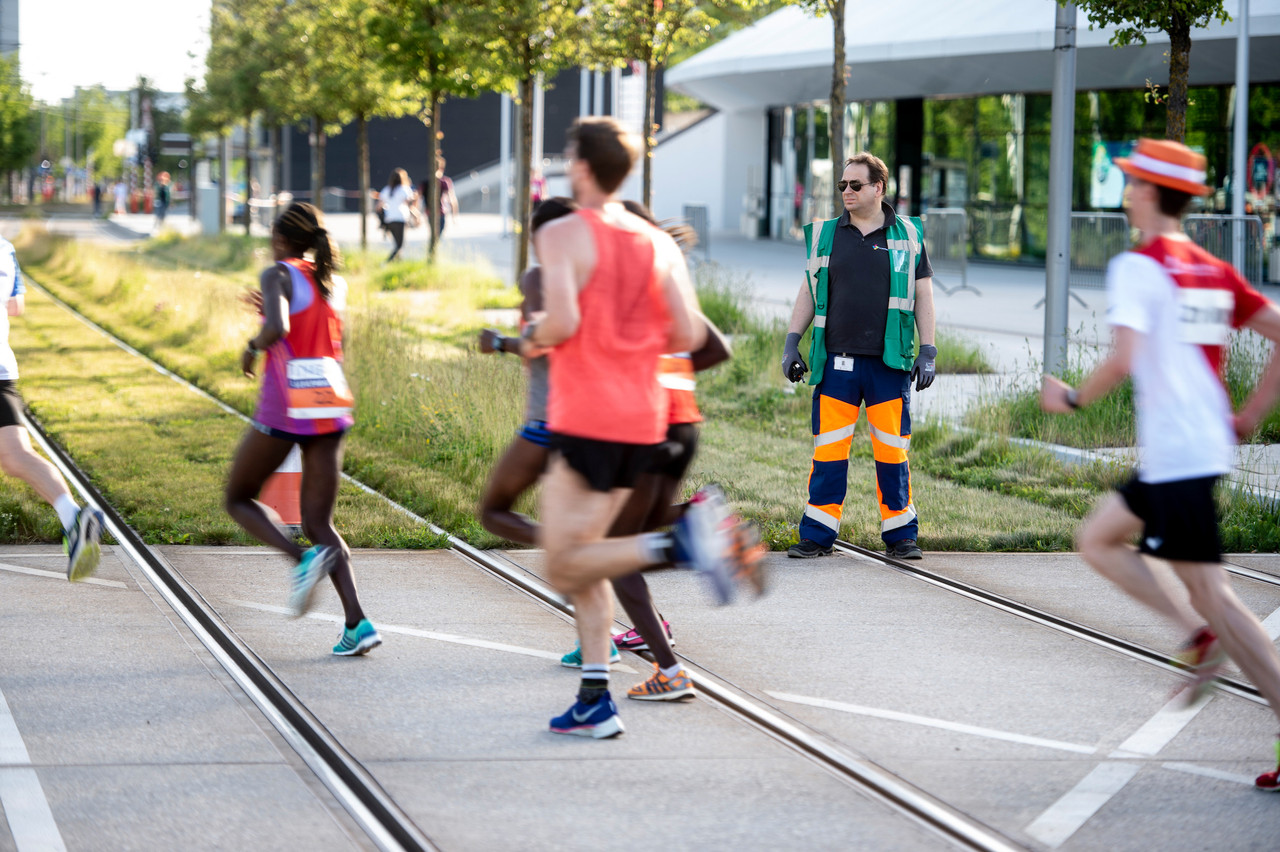“I started to go, like, once a month to Decathlon to get new [athletic] outfits… and I started using an app to measure my achievements.” This was around the time when running became a more serious hobby for Sabrina Bedouda, 36, product owner (chapter omnichannel) at ING Luxembourg. At first, some 10 years ago, she couldn’t run for a sustained 60 minutes. Since then, however, she has run three half-marathons and will participate in the team run in the upcoming ING Night Marathon.
“I think that a lot of people start running because [they think] it’s easy to run, anyone can run--but that’s false,” she says, adding that it’s necessary to train your muscles, work with a trainer and get advice on your technique and foot placement. Having sustained a couple of injuries during her running career, she understands the importance of proper training.
Teammate and colleague Sophie Henriquet, 46, customer journey officer, also has three half-marathons under her belt over a decade-long running career. Part of her preparation includes HIIT, or high-intensity interval training. This entails bursts of running followed by short cooldowns, for example 20 seconds on followed by 10 seconds off. This workout is particularly useful in her case, as it offers an alternative to longer-distance runs, which often cause knee pain for her.
Julian Troian, 51, agile coach, will join Bedouda and Henriquet on the team. Troian ran a full marathon in 2013 but has lately been focusing more on cycling and swimming. “On my bucket list there’s going to be a triathlon, for sure,” he says. He is now returning to the basics of running, he says, and can already do the 10km he will need for the team run.
Sports tech
As for technology, Bedouda uses a Garmin fitness watch and the app Strava, which allows users to map routes, measure their progress through various metrics and compete (or simply share data) with friends. She finds it useful but prefers the Nike app for UI/UX reasons.
Henriquet, meanwhile, prefers to keep it simple: “I just have a [fitness] watch. It helps me see how long I need to go to run 10km.”
Troian also uses Strava for both cycling and running. “I really use the stats to improve,” he says of the cycling aspect. “I check the RPMs, my heartbeat, how I attack a hill.” The app also tracks his own previous rides to create a benchmark in real-time, meaning he can effectively race himself. “I challenge myself… on myself,” he says.
“It’s fun,” he adds, citing the flexibility that the app offers him in terms of his goals on a particular day. “It’s your decision to say if you want to challenge yourself or take it easy.”
Work/life/sports balance
All three of the athletes reported finding more time for sports during the lockdown. “During the pandemic, it was really positive being at home and easy to [run] during lunchtime,” says Henriquet, who lives in Belgium with a forest nearby where she likes to train.
“I had the chance to increase my training because of the pandemic,” adds Troian, who lives in the German countryside.
Bedouda expressed the same, though added that she came back to the office fairly quickly and was soon too busy to jog even during lunchtime. “It’s really complicated. I still have to wake up really early to get a chance to train,” she says.
The runners are looking forward to the team run. As Bedouda sums up: “Have a great moment together, don’t hurt yourself, take it easy and have a lot of fun--because it’s a really fun event.”
This article first appeared in of Delano magazine.
